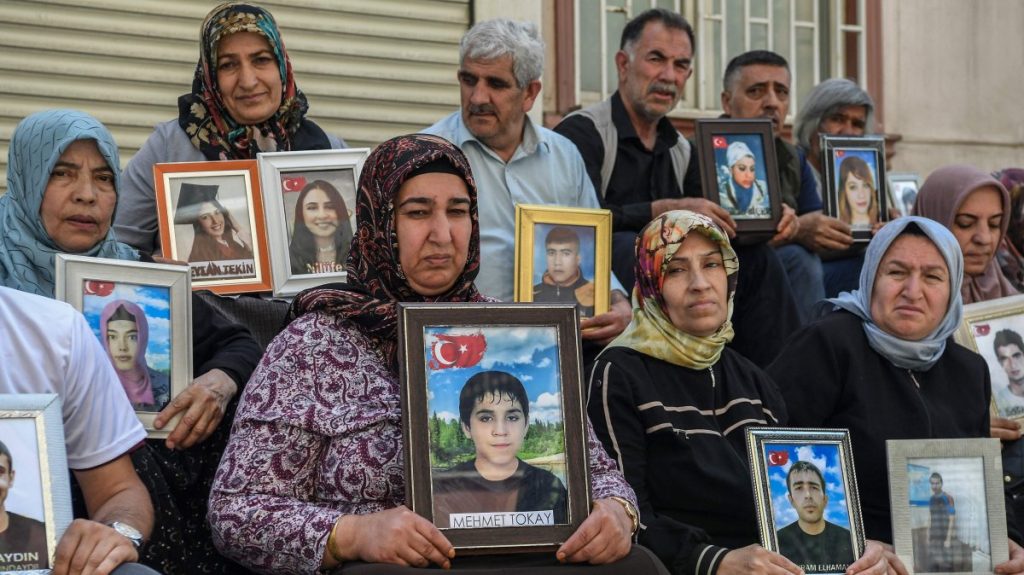Türkiye has reached a critical and historic turning point in its efforts to resolve the terrorism problem that has persisted for nearly half a century. The PKK’s decisions to dissolve its organizational structure, cease all activities carried out under the name PKK and lay down arms open the door to the beginning of a new and promising era for Türkiye. Although the beginning of the process probably started before Nationalist Movement Party (MHP) leader Devlet Bahçeli’s call on Oct. 1, 2024, it was with this call that the process started to be widely discussed in public opinion. The fact that the mutual steps taken by the parties following Bahçeli’s call have yielded concrete results in a short period of only seven months is considered a unique development in the history of Türkiye’s fight against terrorism. Considering the attempts in 2009 and especially in 2013-2015, the fact that Türkiye achieved such a rapid result during the period of its most intense fight against terrorism deserves a privileged scrutiny in the international literature.
Compelling reasons for PKK
Many factors necessitated the PKK’s decision to lay down arms. These factors can be categorized as military, political and social. The most important military factor is Türkiye’s new security doctrine and comprehensive counterterrorism strategy, which was developed after 2015. Through the military campaign, Türkiye has significantly narrowed the PKK’s area of action and operational capabilities. Comprehensive and uninterrupted operations in northern Iraq have destroyed the organization’s freedom of movement and eroded its presence in the region. In Syria, military operations sought to cut the PKK’s ties with its affiliate YPG. In this process, Türkiye’s drone strikes and the neutralization of the organization’s senior cadres created a heavy psychological and operational pressure on the PKK. The Iraqi government’s declaration of the PKK as a banned organization and the northern Iraqi administration’s cooperation with Türkiye have also made the PKK’s regional presence impossible to a large extent.
Regional geopolitical dynamics have also turned against the PKK. In Iraq, the Sudani government’s stabilization and institutionalization steps and its strategic partnership efforts with Türkiye have limited the PKK’s mobility in Iraq. In Syria, the collapse of the Assad regime, Iran’s withdrawal from the region and the U.S. tendency to end its military presence in the region have left the PKK with no ground to stand on. Moreover, the new regional conjuncture created by the Hamas-Israel conflict and the political atmosphere following the humanitarian crisis in Gaza has made it impossible for the PKK to continue its armed struggle.
In terms of political and social dynamics, it is clearer that the PKK’s decision to lay down arms was a necessity. The failure of the PKK-affiliated political movements (especially the DEM/HDP line) to achieve lasting success in local elections has created a vicious circle in Kurdish politics and the PKK’s presence has become a strategic obstacle. The exhaustion of Kurdish voters at the local level and the resistance created by social movements such as the Diyarbakır Mothers have severely weakened the PKK’s support in Kurdish society. PKK’s jailed leader Abdullah Öcalan’s call for laying down arms, stating that there is no longer any reason for the organization to continue its existence, clearly demonstrates the necessity and inevitability of this process.
End of PKK
The decisions of the “12th congress” represent a historical turning point in the process of the PKK’s liquidation. Among these decisions, the PKK’s dissolution of its organizational structure and the termination of the activities of all structures under the umbrella of the PKK are the most striking. The organization’s explicit renunciation of armed struggle by surrendering its weapons and inventory and its move away from separatist discourse and practices and toward democratic politics indicate a radical change in the organization’s political goals.
However, in order for these decisions to be successfully implemented in practice, a number of critical processes need to be carried out. First of all, the disarmament process must be completed in a healthy and auditable manner. The epicenter of the disarmament process will be the weapons collection centers established in the Irbil and Sulaymaniyah regions of northern Iraq. Türkiye, together with the Iraqi authorities, will closely monitor this process and will continue its military and intelligence activities to ensure the full delivery of weapons.
Another critical stage is the PKK’s complete cessation of its activities and the dismantling of all its organizational structures, including its military wing. This process will require clarifying the legal status of members of the organization and planning social integration processes. While the social integration of members of the organization who have not directly participated in terrorist activities may be possible, senior executives and members who have committed crimes will have to be prosecuted. Moreover, the possibility of the organization’s senior cadres settling in third countries should also be considered.
In conclusion, the PKK’s decision to dissolve and lay down arms presents a historic opportunity for Türkiye to solve the terrorism problem permanently. However, this opportunity will only produce concrete and lasting results if Türkiye manages the process meticulously and decisively and takes all necessary political, military and social measures.


